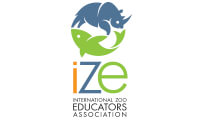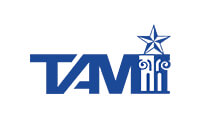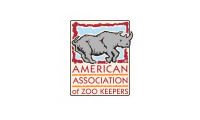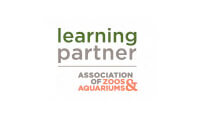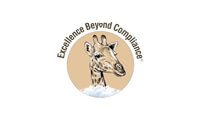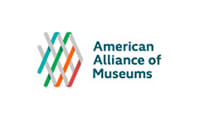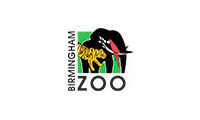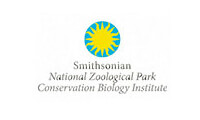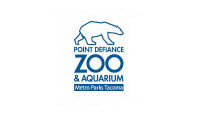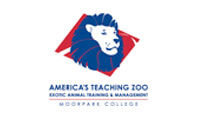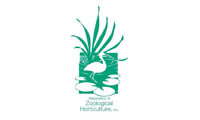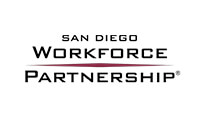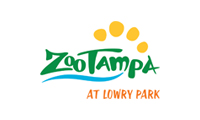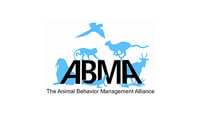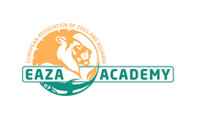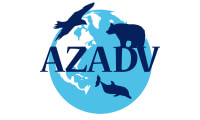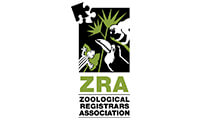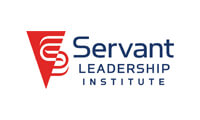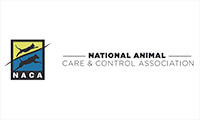Getting Better All the Time
Making Things Even Better—with What We Have, What We Learn Here, How We Think, and What We Create
By James F. Gesualdi
To keep ahead, each one of us, no matter what our task, must search for new and better methods—for even that which we now do well must be done better tomorrow.
—James F. Bell
Nothing works...unless you work it.
—Charlie "Tremendous" Jones
Making things...and making things work...That's where satisfaction is in this life.
—Paul Chadwick
Fruit falls when you shake the tree. You have to keep making things happen.
—Brandi L. Bates
It Takes Work. Work at It. It Works.
Working, making things work, making things work better, and working for animals, their interests, protection, and welfare is what we do each day, as animal care professionals. Starting right now—with what we have at hand and within ourselves—we must be continually growing in awareness and knowledge, developing our thinking abilities, and creating the lives we want with and for animals, especially those precious living beings entrusted to our care.
Such work, growth, thinking, and creating are essential to effectively serving animals, and in doing so, crafting an even more meaningful investment of our life energy—making ourselves, animals' lives, and our world better.
You already have much to do, so let's get right to making you more aware of some developments of note and thinking through ways to put them to good use, to make things better for you and for the animals.
USDA APHIS at 50
The U.S. Animal Welfare Act (AWA) was enacted into law in 1966. Six years later, in April 1972, the U.S. Department of Agriculture (USDA) established the Animal and Plant Health Inspection Service (APHIS) to administer and enforce the AWA, among other regulatory responsibilities. The American Veterinary Medical Association (AVMA) recently commemorated APHIS' 50th anniversary with an AVMA News interview with longtime APHIS Administrator Kevin Shea. Much of the interview dealt with agricultural and associated animal diseases, and Shea noted the "One Health concept," as well as the challenges in filling veterinary positions in "regulatory medicine." Shea also addressed a question on the 2021 USDA Office of Inspector General audit on the agency database, and criticism relating to complaint documentation and follow-up. Staffing limitations and the process for handling complaints (including due process for regulated entities) constrain agency action, according to Shea. He noted:
"(I) met with some of the animal rights advocacy groups earlier this year, and I said we all wish we could do more. All of our instincts are like that. I'm not a veterinarian, but all the people who work in that role are veterinarians, and you don't become a veterinarian unless you love animals. Everyone's heart's there, and we want to do the best we can, but there are the constraints of a legal system, and that's part of the issue, of course."
Things to Think About and Actions to Consider
Should the zoological community be doing anything else to assure that there are adequate numbers of appropriately qualified zoological veterinarians in the future?
Excellence Beyond Compliance® was developed as—and remains—an integrated approach to making ourselves better while making everything about the AWA work better for the animals, and the agency. Animal welfare enhancement/improvement plans, zoo/aquarium/park improvement plans, and third-party reviews, as well as other organizational measures and small steps, demonstrate—to the agency, the public, and critics—well-thought-out, constructive actions that do more for the animals than the AWA or the agency could ever require. It is the right thing to do, and it works well, whatever the agency's current approach to enforcement may be.
USDA APHIS Draft Strategic Plan
APHIS recently sought comments on its Strategic Plan Framework for the next five years (comments were due July 31, 2022).
Here are some significant highlights:
- Protecting the welfare of animals (among other things) is part of the new mission statement.
- Core values are Accountability and Reliability; Collaboration and Teamwork; Integrity and Trust; Diversity, Inclusion, and Equity; Public Service; Innovation and Creativity; and Technical Expertise.
- Under Integrity and Trust, it is stated that they will "act with the best interest of the agency in mind," though it is possible that the agency's "interest" could possibly differ from its legal responsibilities, and avowed mission. That statement is also potentially at odds with one under Accountability and Reliability, which talks about making decisions for "the best outcome for all." Some clarification here might help.
Kudos for the Excellence Beyond Compliance-like statement under Innovation and Creativity (in the draft Strategic Plan Framework, at 2.): "We challenge ourselves to see what is possible. We strive to improve and to do better. We strive to think creatively to solve tough problems. We take calculated risks."
Goal 6 is "Promote the welfare of animals," and it includes objectives to ensure humane treatment under the AWA, and assist in disaster planning and preparedness to ensure animal safety and welfare during disasters. This section notes increased public awareness and scrutiny regarding animal welfare (especially in agriculture). It also mentions that the final regulation on birds will be issued in the first half of 2023.
The Strategic Plan also noted trends that present the agency with challenges and opportunities. One of the top trends relates to public concern about animal welfare (in the draft Strategic Plan Framework, at 7.): "Public perceptions around animal welfare and wildlife in society are evolving. APHIS' activities directly impacting animals are being scrutinized. The public is more interested in wildlife and livestock welfare than ever before. APHIS will need to adopt and promote new technologies to improve animal welfare practices."
Things to Think About and Actions to Consider
Following publication of the final Strategic Plan, keep the agency mission, values, and commitments in mind when presenting ideas and information, to show how they further the agency's work under the AWA.
The final regulation on birds will be issued in less than a year. The effective date of the regulation will likely be 30 to 120 days later. The final regulation is likely to differ somewhat from the proposed regulation, though the proposal provides a useful starting point for familiarizing staff with the framework for the potential requirements and most of the provisions that will likely remain intact in the final regulation. By this fall, ask appropriate staff members to review and discuss the proposed regulation, along with the changes and improvements that might be in order. If you have or discern good practices that were not already shared in the public comment process, think about sharing them with the agency as examples for meeting and exceeding the new regulation when it is published.
This column, discussed below, (especially the things to think about/actions to consider under the House Report) constructively addresses the heightened public consciousness about animals.
Continue to look for ways to showcase leadership and advance animal interests, protection, and well-being, given noted increased public attention and scrutiny regarding animal welfare. (This column—and Excellence Beyond Compliance—can help!)
USDA APHIS Animal Care Adds Climate Change-related Emergency Planning and Preparedness Webpage
The recently re-enacted contingency plan and training of personnel regulation became effective in July (a bit more on that below). That same month, Animal Care added a webpage: "Climate-Change-Related Emergencies and AWA Regulated Facilities. "The agency recommends reviewing the climate change-related risks, events, and considerations, especially in conjunction with any updates to your organization's contingency plan. They suggest that you review this now. As the agency states, "By planning for the potential extremes, you can help to mitigate the impact of a natural disaster on animals, staff, and property." Among the events identified are drought, heat, winter storm, storm/tornado, fire, and flood. Many of the listed considerations may already be contained in your contingency plan. Some, like adequate shade and shelter, reflect specific existing AWA requirements. Others, like conserving water and having alternative water sources, and providing copies of your contingency plan and a list of animals in your care to local emergency management authorities, may be new. The webpage also has links to related informational resources.
Things to Think About and Actions to Consider
Those responsible for contingency planning and emergency preparedness/response should review this climate change webpage, particularly the list of considerations, which can be used as a checklist to compare with your organization's contingency plan. This may generate potential changes or modifications. For instance, as suggested by the agency, perhaps you should consider maintaining an adequate supply of fence repair materials and chain saws among the equipment and resources needed as part of your emergency response. Your review and experience may also indicate items the agency may have missed that your organization could recommend they consider.
* * * *
Just a little more to know: Animal Care also has an Animal Care Emergency Programs webpage. The agency has posted a few additional questions and answers arising from its webinar or the new contingency planning and training of personnel regulations. Among the guidance contained in the agency responses is a statement indicating that it is "left to the discretion of the facility whether changing a responsible party on a plan is considered a substantive change" requiring retraining.
Other Updates
USDA APHIS Animal Care has posted a number of other updates and new information and resources on its website. To save you valuable time (and perhaps keeps you from the fun of searching the website yourself) here are some items worth noting:
Birds—Get Ready, Here It Comes
As reported previously and above, the agency now notes on its webpage on the proposed standards for birds that the "estimated date of publication [of the final regulation] is somewhere around February 2023." Start thinking about that and preparing by this fall.
Licensing Under the New Regulations
For a quick refresher on the new licensing process, as well as those developments that trigger a new license application (other than the end of your new three-year license itself), there is a Tech Note available.
The End of "Teachable Moments"
In a July 29, 2022, email to stakeholders, APHIS Deputy Administrator for Animal Care Dr. Betty Goldentyer reported that as of August 1, the agency will no longer use "teachable moments" to document minor "isolated" AWA non-compliances not directly impacting animal welfare and that are easily corrected. Instead, these items will now be included in inspection reports, as directed by Congress. Teachable moments already available for public review in the agency database will remain online.
Appealing Ways to Resolve Differences with the Agency
When you have a good basis to demonstrate that the agency did not quite get it right, start with a discussion with your inspector during an inspection or exit interview relating to the item(s) in question. Bring forth all relevant information, records and insights. If that does not yield a resolution, an inspection report appeal may be a constructive tool to resolve things. Similarly, if this occurs during a third pre-license inspection, there is a slightly different appeal process. For more information, see the new Inspection Report Appeals Process Tech Note.
Updated "Blue Book" Online
The updated electronic version of the agency "Blue Book" containing the full text of the AWA and all the AWA regulations is now posted on the agency website. Dated May 2022, this now includes the terms of the new licensing regulation, and the contingency planning and training of personnel regulation.
Things to Think About and Actions to Consider
When there exists a legitimate basis to differ regarding the content of an inspection report, take a hard look at the grounds for your perspective and evaluate a potential appeal, but also keep improving.
Check that you and your staff are now using the updated version of the electronic Blue Book of AWA Regulations.
House of Representatives Statements on AWA-related Matters
The House Report (117-392) accompanying the appropriations bill (H.R. 8239) for USDA and other agencies, recently adopted by the House, contained some AWA-related language. The Appropriations Committee language was highly critical of USDA APHIS Animal Care, noting it "is concerned about APHIS's Animal Care program and the steep decline in enforcement related to violations of the Animal Welfare Act." The Committee increased relevant USDA funding (including monies for Office of General Counsel enforcement, and suggested inspection, enforcement, and inspection report sharing related reforms to address "the poor status of the program." (Report at 33.) The bill also prohibits use of funds for "the prioritizing of education and collaborative approaches to violations or non-compliance instead of enforcement under the Animal Welfare Act." (§755(b)).
The Appropriations Committee also directed the agency "to prioritize the development and facilitation of a humane and science-based rule to modernize its marine mammal regulations, and to report back within six months on its progress in achieving that goal." (Report at 38.) The Committee noted that AWA marine mammal standards "are seriously outdated" and "do not adequately protect the welfare of marine animals." (Id.)
Things to Think About and Actions to Consider
Your commitment to your animal welfare program and managing to exceed regulatory compliance is more important than ever. Use this awareness to think about and create small improvements every day. (An Excellence Beyond Compliance program just takes one small step to start, then go from there.) You can show the agency, the public, critics, and even the U.S. House of Representatives that you know how to make the AWA work for the benefit of the animals. It is a starting point. Get to it!
As has been written here and elsewhere previously, some of the marine mammal standards date back to the 1970s and early 1980s. Other standards were put into place in 2001, as a result of consensus achieved among stakeholders during the Marine Mammal Negotiated Rulemaking in 1995 and 1996. Crafting updated, effective, science-based regulatory provisions should be undertaken and proposed by those who care for the animals on a daily basis. A new Marine Mammal Negotiated Rulemaking should be requested, contingent upon congressional funding via the same Appropriations Committee, and new standards can then be attained by consensus. For additional ideas on advancing marine mammal interests, protection, and welfare, contact the Academy or the author for a recent article published by the American Bar Association on the subject.
An Encouraging Look into the Future and Potential Shared Perspectives
A recent viewing of the GLMV ECHO Digital program, "The Next Generation of Zookeepers" provided an encouraging look into the future of the zoological community. The program featured a discussion with five earnest, thoughtful young caregivers: Payton Chatfield, Mara Eisenbarth, Taylor Horton, Julio Mendez, and Matt Vieth, facilitated by Michael Clifford. First off, the passion of these caregivers, their commitment to the animals, and their desire to make a difference for the animals and for people was reminiscent of the aspirations of similarly earnest, thoughtful young mentees in animal law and other fields. Practical concerns about being appreciated, compensation and benefits, and raising and supporting a family also struck a chord. Physical demands, at times seemingly overwhelming responsibilities, "compassion fatigue" in putting one's heart fully into animal well-being, sensitivity to mental health needs, and support from above are challenges zoological caregivers share with other professionals working on behalf of animals. To quote the Depeche Mode song, "People are People," whatever their perspective on certain animal-related matters. Overall, the panelists' gratitude for doing what they love, and comments and insights, should make us all feel better about the future and those young professionals who are doing exceptional work caring for animals.
Things to Think About and Actions to Consider
Caregivers, and those aspiring to be caregivers, as well as other young professionals working with and/or on behalf of animals, should view this program. It will open your eyes to what lies ahead for you and the zoological community. More importantly, you will understand that you are not alone, and there are others who have lived what you are or may be experiencing—and it is OK to ask for help.
Zoological leaders, human resources professionals, recruiters, and educators should watch this program. It will open your eyes, encourage you about the future of the profession, and provide a firsthand account of things, and perhaps help guide you to build up, support, sustain, and retain professionals ready to give so much of themselves for the animals and their zoological organizations.
Let's Keep Working at It!
Thank you for using your limited time and focused attention to expand your awareness about these developments, and how they might be utilized to better yourself and your efforts for animals. It's work to explore new things, think about them differently, and create a better future starting now. We are most fortunate that we get to undertake such "work" and make the difference that only we can.
We strive to be as thoughtful as possible and ask the best questions we can. And so we're always looking to push ourselves outside of the way we think, how we do things, and if we might be able to do things better.
—Michael Clifford
I feel like we're learning new things about our animals every day. It's something that I value in my current position and in future positions...would just be the ability to focus and hone in on what it takes to continually improve the welfare of our animal collection.
—Julio Mendez
In loving memory of St. Lawrence University Professor C. Fred Exoo, for enlightening me with a very different perspective and showing me great kindness and mercy while creating new opportunities for growth; Jean M. O'Connell, whose unbounded love of life and all creation inspired her relentless spirit of service to others; and Dr. Sam Ridgeway, with gratitude for his friendship, and significant contributions to marine mammal health and welfare.
© 2022 James F. Gesualdi, P.C. The opinions expressed herein are solely those of the author. This is not, nor should be construed as, legal advice.


